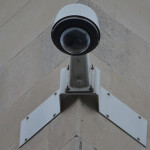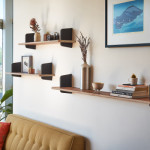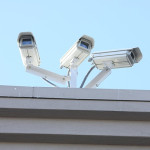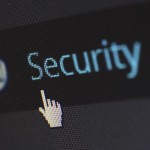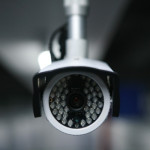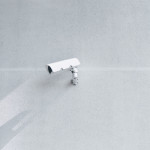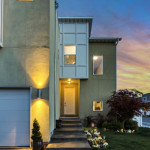Important Night Vision Camera Features
Night vision security cameras are very helpful in providing around-the-clock surveillance for homes and businesses. Their ability to see in the dark is thanks to advanced IR (infrared) surveillance technology. However, when shopping for a night vision camera, simple wording such as “infrared (IR) illumination” and “night vision” is not enough. You want to look for specific features to ensure you are choosing the best night vision security cameras.
Three important features to look for include:
- IR cut filter
- Powerful Illumination
- Infrared Illuminators (ideally, these match the FOV (field of view) of the camera’s lens)
The quality of your night vision security camera will be determined by these features.
IR Cut Filter
Night vision security cameras with infrared cut-off filters improve image clarity (especially in daytime) and can prevent out of focus images. The way the filter works is quite simple, yet makes all the different in video and image quality.
The IR cut filter is physically moved over the lens when daylight (white light) is detected to block out the IR light (that would affect the image quality). When the light levels drop to the point where night vision is necessary, the camera will move the lens out of the way. This “filter switch” allows the camera to pick up the same colors as the human eye to record natural looking images and results in better images overall. Without these filters, there’s no way to prevent full-spectrum light, thus, daytime images would suffer from distortion and possible loss of focus.
Powerful Illumination (IR LEDs) Beam
Simply put – the more powerful the illumination, the better the night vision will be. For example, if you are looking for outdoor cameras, you want cameras that produce something in the neighborhood of 100 ft. of IR illumination.
Infrared Illuminators
Before discussing IR illuminators, the Field of View (FOV) should be understood. If you think of it in terms of binoculars, the field of view is everything you see when looking into them. What you cannot see is outside of the field of view. Often times, the infrared illuminators in a night vision security camera don’t match its FOV, thus the IR-beam is not illuminating the total area captured by the lens.
For the night vision cameras with an IR illuminator narrower than the FOV, you get a bright area in the middle of the image with the darkness growing as you get further from the center (ex. the spotlight effect). This is problematic as it makes it nearly impossible to identify areas outside of the center of the image. Finding a night vision camera with an IR illuminator that is equal to the FOV may cost more, but is well worth it.
Although seeking out specifications and ensuring that night vision cameras meet your expectations and requirements seems like a tedious task, it is well worth the security and peace of mind when it comes down to it.
Need help choosing a night vision security camera? Contact us at 888-203-6294 to discuss your options. You may also browse our stock of IR night vision cameras and other surveillance equipment online at SecurityCamExpert.com. For the latest updates, connect with us on Facebook, Google+, Twitter, LinkedIn, and Pinterest.
Video Surveillance Maintenance
Implementing an advanced, top quality CCTV surveillance system can greatly improve your overall security. However, if not installed and maintained properly, it could ultimately be useless. In order to preserve its effectiveness, be sure your surveillance system is professionally installed and that you routinely complete maintenance checks.
Employ this video surveillance maintenance checklist to keep your system functioning optimally.
- Clean Camera Lenses
A dirty camera lens will compromise your video footage. Smudges, dust, water-spots and other undesirable elements can occur. To avoid this, check both indoor and outdoor camera lenses to ensure they are clean. Ideally, to clean your camera lenses, you should start with a compressed air can to blow the lens and remove loose debris, and then use a microfiber brush to gently wipe the lenses.
- Landscape
When installing outdoor cameras, be sure there are no obstructions. If you must install an outdoor camera near trees or other greenery, be sure to trim the landscape to keep the field of view clear.
- Camera Housing
Security camera housing is meant to protect your camera from rain, wind, and other elements, but sometimes it can be compromised. To ensure that the housing is functioning properly, open it to check for signs of water, dirt, and condensation. If you see any of these, it may be time to invest in new, better camera enclosures.
- Check For Corrosion
Be sure to monitor your connectors for any signs of corrosion. If you find that any are corroded, replace them immediately as this can cause the equipment to short out.
- Check Cable Connections
As you check the connectors for corrosion, you want to also make sure that all cable connectors are receiving power and watch for signs of wear and tear. If you find any exposed wire, replace it immediately.
- Check The Power Supply
To ensure that there is no loss of power, check your power supplies and UPS (be sure batteries are fully charged and no warning lights are on). You may also want to invest in a voltmeter to guarantee that your surveillance cameras are receiving their recommended power requirements.
- Dust Your DVR
As with any dormant device, your DVR may begin collecting dust. You should wipe this clean with a microfiber cloth (or use a blower to dust the crevices) regularly to prevent any negative effect on your DVR’s performance.
- Emptying The Hard Drive
Depending on your hard drive capacity, you will need to periodically back up and delete your video footage once it fills up.
- Verify The Recording Function At Least Once Per Week
Set a weekly reminder to check on your camera recordings to make sure they are working. It is better to take preventative measures so that you don’t miss any important footage.
- Periodically Review Camera Position Set Ups
Make sure your security system is providing optimal surveillance by checking camera locations and focus. If there are any areas that are going unmonitored, you may consider adding additional cameras.
- Check The Lighting
Be sure that your cameras are receiving adequate lighting to produce clear images for easy identification. Additionally, make sure cameras are not being washed out by sunlight during the day.
- Check And Remove Any Obstructions
As mentioned, you want your camera to have an unobstructed view. Should a hidden camera become covered by a banner or poster, be sure to remove and/or relocate them.
- Date And Time
Check the date and time on a daily basis for accuracy. A brief power outage may require the date and time to be set again.
- Signage
Visible surveillance signage can act as a deterrent on its own. It lets potential intruders know that you are employing a video surveillance system and may discourage them from targeting your property.
- Secure A Comprehensive Maintenance Coverage
Many service level agreements to maintain your surveillance system are available. They may include things like inspection, loaner gear, emergency response, extended warranty coverage, and more.
Have any other maintenance tips to share? Connect with us on Facebook, Google+, Twitter, LinkedIn, and Pinterest.
If you need help choosing the CCTV surveillance system and security cameras that will best suit your needs, please feel free to contact us at 888-203-6294 or visit SecurityCamExpert.com today!
Advantages Of Video Surveillance For Business
Video surveillance can be an excellent security measure in various environments. While retail stores and remote ATMs are commonplace locations for video surveillance, its benefits can also be seen when applied to a wide range of businesses and homes. Here are a few examples of these video surveillance benefits and why you should consider investing in it (if you don’t already).
- Protection Of Assets
A major selling point for video surveillance is their effectiveness as a crime prevention tool. The mere presence of these cameras can discourage criminals from trespassing, vandalizing, and stealing your property.
- Employee Protection
By installing surveillance cameras in parking garages or remote parking facilities, rear or side building entrances, and other dimly lit areas, you can increase employee safety and security. Not only does this protect your property, business, and employees, but it also shows employees that you care and value them.
- Legal Protection
Your video surveillance cameras can even deter frivolous lawsuits (and save you money). For example, let’s say a person claims to have injured themselves on your property and threatens a lawsuit. Without video evidence it’s your word against theirs. However, proper video surveillance footage provides concrete evidence of the incident.
- Discounts On Property & Liability Insurance
Often times, insurance companies offer discounts for home or business owners who have video surveillance cameras installed. These discounts can potentially offset the costs of your surveillance system.
- Increased Employee Productivity/Theft Prevention
A watchful eye can help to keep your employees on track. Employees are much more likely to stay on task when they are being monitored. Security cameras placed around the building, at loading docks and auto dealer service bays have been proven effective for improving productivity. In addition, employees are less likely to take off with company property when cameras are monitoring exit points.
- Remote Monitoring
Remote monitoring is a common and popular security feature, which will enables surveillance around the clock, even after your and staff have gone home. You can utilize this on its own or you may supplement your staff and guards.
Share your own video surveillance benefits with us and your peers on Facebook, Google+, Twitter, LinkedIn, and Pinterest!
For a great selection of CCTV video surveillance packages, security cameras, and other security solutions, please visit SecurityCamExpert.com. To schedule a site survey, request a free quote, or inquire about our installation services, please call us 888-203-6294.
PTZ Cameras: The Basics
When it comes to security cameras, there are various types that work better in certain situations than others. Thanks to their specialized functions, PTZ cameras are ideal for monitoring large, high-traffic areas.
PTZ stands for Pan, Tilt, and Zoom, which means these security cameras can provide improved surveillance. These functions can be controlled manually (via monitoring software or a joystick) or automatically (via camera management software). Actively keeping an eye on the feed and the ability to manipulate the field of view means security staff can respond to any incidents that may arise quickly.
When employing camera management software, you have the option of setting up guard tours, which enables the camera to automatically move to set locations on a schedule. In addition, some PTZ security cameras offer auto-tracking, which can automatically follow a moving target (such as a person or car).
How Does PTZ Work?
Pan
- The camera can swivel left and right for a wide area of coverage.
- Pan can range up to a complete 360 degrees or less.
Tilt
- The camera can tilt up and down for a wide vertical range of coverage.
- Tilt will vary by camera model, with a maximum of 180 degrees.
Zoom
- Optical zoom physically adjusts the camera lens (by changing the focal length) to zoom in and out (allowing the camera to maintain image quality).
- The amount of optical zoom is expressed as #x (ex. 18x), which represents how much the camera can zoom (change the lens focal length).
- Digital zoom blows up the image using software. This often results in pixilated images when zoomed too far, and thus, is not recommended.
As previously mentioned, PTZ cameras are ideal for surveillance of large areas including parking lots, common areas in schools or businesses, and convention centers. You may monitor the overall area while zeroing in on any suspicious activity. When paired with fixed network cameras that handle important locations such as entrances and exits, you can create a very flexible and functional surveillance system. With the fixed cameras maintaining an eye on vital points, the PTZ cameras are free to move around as needed. Furthermore, PTZ cameras are available for indoor or outdoor use in a variety of styles (but most commonly dome style).
Do you employ PTZ cameras on your own property? Share your own tips for utilizing these cameras with us on Facebook, Google+, Twitter, LinkedIn, and Pinterest.
Browse our selection of PTZ security cameras and more to suit your surveillance needs. Visit SecurityCamExpert.com or call 888-203-6294 today!
Building The Ideal CCTV Surveillance System
When it comes to securing your property, CCTV cameras can be very effective. However, because there are a wide variety of CCTV cameras suited for different applications, if they are not properly implemented, their effectiveness may be compromised.
Before choosing your surveillance system, review the different types of CCTV cameras and the application for which they are best suited.
Different Types Of CCTV
Dome Camera
- Commonly used for indoor surveillance
- The ambiguous shape & design acts as a deterrent as criminals are unsure which way the camera is facing
- Ease of installation
- Vandal-proof features
- Infrared capability
Bullet Camera
- Long, cylindrical shape ideal for long distance viewing
- Better suited for outdoor use
- Protective casings safeguard against dust, dirt, and other natural elements
- Compact size makes for easy installation and mounting with bracket
- Fitted with either fixed or varifocal lenses depending on the requirements of the intended application
- Adaptability (can be used indoors and outdoors)
- High quality image resolution
C-Mount Camera
- Detachable lenses allow for simple lens changes to fit different applications
- Specialized lens use allow these cameras the ability to cover distances beyond 40ft
- Can support changes in technology
- Effective for indoor use
- Bulky design and presence acts as a deterrent
Day/Night Camera
- Can operate in both normal and poorly lit environments
- They utilize extra sensitive imaging chips (instead of infrared illuminators)
- Ideal for outdoor applications in which IR cameras do not function optimally
- Record in both color and black & white
- Wide variety of sizes available
- IR (Infrared) capability
PTZ (Pan/Tilt/Zoom) Camera
- Used with live guard or surveillance specialist operating the security systems
- Pan and tilt rotation
- Smart tracking features
- Powerful zoom and autofocus
What To Consider
Choosing the right CCTV camera for your property is important. You want to evaluate your needs to determine where you will place these cameras as well as their primary use in that location. Some factors to consider when choosing include the lens, sensor, and output resolution.
- Lens
The lens will dictate the quality of the image. The appropriate lens will allow your camera to focus and bring in enough light to the sensor, providing clarity and the ability to better identify things such as faces and license plates. A zoom lens will allow for further detail since it can adjust the light as it reaches to sensor for enhanced pictures and flexibility.
- Sensor
There are two types of sensors:
- CMOS (complementary metal oxide semiconductor)
- CCD (charged coupled device) cameras
CCD are more expensive than CMOS and produce clearer images (ideal for identifying faces and license plates).
- Output Resolution
Generally speaking, the more pixels, the better the picture. The highest resolution you can get is 700TL, but most cameras range between 300-550TVL. Be sure to match a resolution that your camera can produce because anything more is unnecessary.
Other Things To Consider:
- Discreet Vs. Visible
Box cameras are easier to be seen and clearly tell passersby that they are being recorded, which acts as a great deterrent. Dome cameras, on the other hand, are smaller and more discreet, making them ideal for monitoring larger areas such as front or backyards.
- Indoors Vs. Outdoors
Consider where you will place your cameras both indoors and outdoors. If you plan on placing them outdoors, you want to ensure they are in the best location and well protected (weatherproof and vandal proof housing). For indoor cameras, you want to make sure it will not be affected by things like grease or steam from the kitchen.
- Lighting Conditions
Whether indoors or outdoors, lighting will always change so it is advised that you test different camera models to see what works best with your lighting conditions. You also want to check for any reflections or backlighting during day or night.
- Image Clarity
This will depend on the size of the area you want to monitor. Thus, a camera situated in a small room need not be of high resolution. The resolution of your CCTV camera should reflect the landscape in order to provide effective images.
- Audio?
This depends on your personal preference (you should also look into the laws regarding audio recording if applicable). Some CCTV systems allow you to speak to the intruders, or you can have audio or alarms sound automatically when they reach a certain point. These tactics are meant to scare the intruders away before they can cause damage.
If you need help choosing the right CCTV surveillance system, call 888-203-6294 and we will be happy to help! You may also browse our selection online at SecurityCamExpert.com and connect with us on Facebook, Google+, Twitter, LinkedIn, and Pinterest.
Safeguard Your Video Surveillance System
While video surveillance systems protect us from potential intruders and dangers, without the proper safeguards, these systems can fall victim to hackers. In order to maintain the integrity of your video surveillance system and keep the cybercriminals at bay, you may want to consider following these tips to protect your surveillance system.
Choose Branded Video Cameras
If you invest in cameras that are not branded, you may not receive the necessary updates and security patches that often come with branded security cameras. This means that your non-branded cameras will remain susceptible to vulnerabilities and exploits. Play it safe and purchase branded cameras known for quality cyber security and be sure to routinely check for patches and updates.
Protect Your Surveillance Network
A major vulnerability of surveillance systems lies in open IP cameras. With these IP cameras located across your property and connected to your network, anyone can disconnect your cameras and connect a laptop or device and gain access to your entire network. To prevent this, lock down the MAC addresses that can connect to the network, allowing only your cameras to connect to your surveillance systems.
Setup VLANs
Never put your surveillance cameras on the same network as your workstation. Keep your security camera network isolated via VLANs and only allow the video recorders to communicate with the cameras.
Change The Default Camera Password
This seems like a no-brainer, however, it must be said. The default password is often readily available on the company’s website, thus, it is advised to change the default password to a strong one that you can remember.
Keep Separate Logins For Access & Admin Privileges
Along the same lines, you want to keep separate logins when it comes to access and administrative privileges. That way only the appropriate employees can gain access to the admin privileges, such as updating firmware or obtaining streaming video.
Do you have any other surveillance system tips to share? Connect with us on Facebook, Google+, Twitter, LinkedIn, and Pinterest.
Visit SecurityCamExpert.com to browse our stock of affordable CCTV security cameras and video surveillance systems. To request a site survey or free quote, please call 888-203-6294.
Night Vision Security Camera Tips
Burglars often like to creep in the dark night in hopes of being undetected. This is precisely why night vision security cameras are so important. But keep in mind that the value of night vision cameras is directly connected to their effectiveness and performance. To employ the best night vision surveillance system, keep these things in mind.
- IP Power
Remember that all IR CCTV cameras have a quoted maximum range. For example, these can range from 5m to 50m or longer. This range is the absolute maximum, meaning at these extremes, your image quality will not be its best. Measuring how far you need to see and then adding a third of that is recommended. For example, if you need to see 30m, it may be advised to invest in a 40m camera.
On the other hand, you don’t want the IR to be too powerful either. Most CCTV cameras cannot adjust the IR brightness, thus, if a subject is too close to a camera designed for long ranges, it will simply look too bright and/or washed out.
- Wide Angle Lenses
IR LEDS are designed to brightly illuminate the center of an image, therefore, most of these cameras will not have a very wide angle of view. While this is not a common problem, some cameras will have varifocal lenses that can zoom out. With these, be aware that at the wide end of the zoom, the corners of your image will not be covered by night vision.
- Field Of View
For all security cameras, you want to be sure that the field of view is clear of obstructions, but this is especially important for IR CCTV cameras. If there is something like a branch or leaves in the frame, the LEDs will focus on these and they will be brightly lit. The rest of the image will be made darker in order to compensate, thus rendering the image is useless.
- Reflection For IR
In order for night vision cameras to work, IR needs something to reflect off of. When users point a camera into an empty field, they may be alarmed when there is nothing but darkness and may assume the night vision is not working, but this is not the case. When a subject moves into range, the IR can reflect off of it, and thus, the subject will be visible.
- Mounting Height
Keep the height at which your cameras will be installed in mind when you are considering the power of your night vision. This is especially important when installing cameras above ground floor height. For example, if your car is parked 4m away from your house, and your camera is mounted 3m from the ground, the actual distance from camera to car is 5m.
Share your own night vision camera tips with us on Facebook, Google+, Twitter, LinkedIn, and Pinterest!
For a great selection of night vision security cameras and surveillance equipment, visit SecurityCamExpert.com or call 888-203-6294 to speak with us directly.
Why Choose Wireless Security Systems?
Protecting your home from possible intruders is a high priority for most these days. When it comes to security systems, the debate between wired or wireless can be a tough decision. Both types offer advantages and disadvantages, with wired systems often seen as more reliable and wireless as more convenient. It really comes down to your own individual security needs and which type of system better suits these. Because wireless security camera systems are more advanced, they seem to be more appealing. Here we’ll review some of the important benefits of wireless security systems.
- Better Security
Wireless security systems offer better protection against intruders than wired security systems. Since wired systems use the telephone line or internet connection, if one or both of these are down, so is your security system. Wireless systems use more reliable cellular connections, and thus, the alarm will still be triggered via the dedicated cellular service or the batter powered backup system.
- Easy Installation
Most wireless systems are usually plug and play or DIY and can be set up in under 30 minutes, making installation of these systems and equipment easy and convenient. Wired systems require professional installation that takes longer to set up and test to ensure proper installation and functioning.
- Remote Surveillance
Wireless systems often provide other functions, such as controlling lights and locking and unlocking doors. These tasks can be managed remotely via an app installed on your smart phone or device.
- Mobile
Because they are easy to install, wireless security systems are also easy to uninstall and relocate. This is helpful when you are moving or even when you need to expand your system.
Although these seem like great advantages, they may not be right for you. As mentioned, it is important to evaluate your own security needs to better understand which type of system will work best for you. If you need help deciding, please feel free to contact us at 888-203-6294. You may request a free quote or schedule a site survey. Browse our comprehensive stock of affordable security solutions online at SecurityCamExpert.com and connect with us on Facebook, Google+, Twitter, LinkedIn and Pinterest.
Tips For Improving Your Home Security System
Home security camera systems help home owners protect their property and loved ones. They provide an extra set of eyes to monitor your home whether you are at home or away. Because of the financial investment, it is important to ensure that everything is working properly.
There are many ways in which you can optimize your surveillance cameras to get the most out of your security system. Here are a few smart security tips to improve your system.
Use Motion Detection
A security camera that is recording everything all the time sounds good in theory, but will require a large amount of memory and power. It will also be more difficult to sort through the mundane footage to find what you are looking for.
Thanks to motion detection, your camera does not have to record all the time. Motion detection enables your camera to start recording when activity in the field of view triggers the sensor. This means you will not need to worry about running out of storage space and makes it easier to sort through your recordings.
Consider Location
Choosing the right location for your security cameras is crucial. Be sure to adjust the angle of your camera to maximize your field of view and ensure that obstructions, such as trees or bushes, do not block the camera’s view.
Other Home Security Solutions
Although security cameras are important, they cannot do everything. Pairing your security camera system with a high quality and reliable alarm system can increase your home security overall and may even help with insurance discounts.
Multiple Cameras
While an outdoor security camera is common, often times, one camera is not enough. If there’s only one security camera present, it’s likely that burglars will work around that. You want your security cameras to monitor high traffic areas and points of entry (ex. front door, back door, first floor windows). That way, you get more comprehensive video surveillance should you become a target for home invasion.
Proper Maintenance
You can’t just set it and forget it when it comes to your surveillance system. Keeping your cameras clean and any potential obstructions at bay will help maintain the performance and effectiveness of your system. Skipping routine maintenance checks may cause your cameras to miss important moments.
Do you have any other home security tips? Share with us on Facebook, Google+, Twitter, LinkedIn, and Pinterest.
For a great selection of affordable security cameras and CCTV surveillance camera systems, please visit SecurityCamExpert.com. For more information about our installation services or to request a free quote, please call 888-203-6294.



